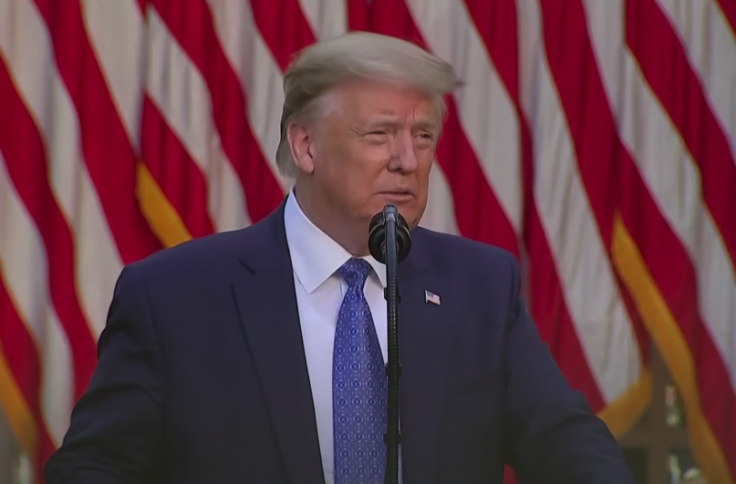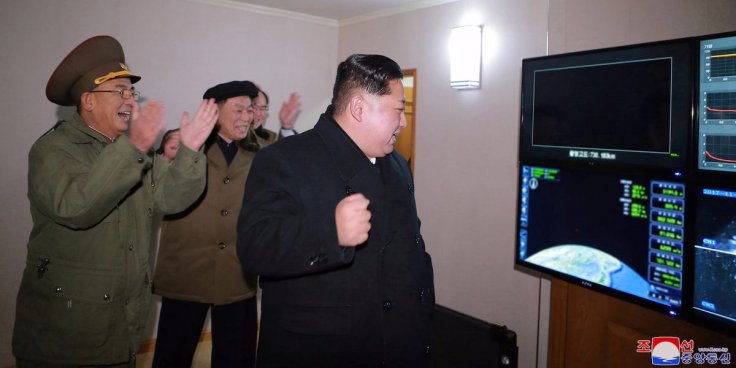Donald Trump is facing Democratic presidential candidate Joe Biden in the November election to retain his title as the President of the United States. However, he could be facing a much bigger threat. North Korea will most likely attack the U.S. presidential election in November, claim analysts after Kim Jong Un's regime explicitly threatened that possibility recently.
North Korea to Target US Presidential Elections

"North Korea will be able to test how far and to what extent it can damage the U.S. election system," Sung-Yoon Lee, the Kim Koo-Korea Foundation professor in Korean Studies at the Fletcher School of Law and Diplomacy at Tufts University, predicted. "I fully expect North Korea to test its own capabilities to see what it can get away with by hacking into the U.S. election system."
Sung-Yoon added that North Korea's cyber operations are one of the best in the world and it wouldn't come as a surprise if it decided to put it to use during the US elections in November.
Threats over US Meddling in Korean Affairs
Last week, North Korea released a statement saying that the US should not get involved in inter-Korean affairs and it would be in its best interest to stay quiet if it wants the upcoming presidential election to go smoothly. The threat came after the U.S. State Department said it was disappointed at North Korea for suspending communication hotlines with South Korea on Tuesday.
The North Korean Foreign Ministry warned the Trump administration that "the U.S. had better hold its tongue and mind its internal affairs first if it doesn't want to experience [a] horrible thing. It would be good not only for the U.S. interests but also for the easy holding of [the] upcoming presidential election."
"North Korea increases its psychological pressure, political pressure on its main adversary, the United States. So, the latest veiled, thinly veiled threat from the North Korean foreign ministry about meddling in the upcoming U.S. elections... is all part of the growing escalatory strategic playbook which will be punctuated by a more serious provocation, like an ICBM [intercontinental ballistic missile] or even nuclear test," Sung-Yoon noted.
Digital Warfare

North Korea's digital warfare front is more effective than its nuclear weapons program, as pointed out by Business Insider. Kim has been investing in an elite cyber force, which comprises about 7,000 people. The wing operates under the control of the military.
In 2014, Sony Pictures Entertainment was hacked by a group that called itself the Guardians of Peace. The hackers demanded that Sony cancel the planned release of "The Interview," a comedy about two Americans who assassinate North Korean leader Kim Jong Un. The US government said it had strong evidence that North Korea was responsible for the attack, though the North Korean regime denied it.
National Emergency
The bipartisan group Issue One recently published a report called "Don't Mess With US," saying foreign interference "puts our election at risk." The report referred to foreign interference as "a national emergency" and accused Congress of failing to do enough to protect the elections and has even set up a website, DontMessWithUs.org, to study foreign threats.
"North Korea most of the time is bluffing. But, in this case of, 'we are going to mess with your elections,' they can use crude instruments in cyber warfare," warned former Tennessee Rep. Zach Wamp, a Republican who's currently an Issue One Reformers Caucus co-chair. "We've got to take it seriously."
He continued: "They can do it, you know, from a closet in North Korea because of technology. So, it's almost like the box cutters used in 9/11. It's crude technology. We don't know what they're up to, but they could really mess this up again in this election cycle. So, we've got to be very aware of this threat."
Both the federal and state governments have been beefing up their protections against hacking of the election system. Still, groups like Wamp and Issue One have been urging Congress to allocate more funds to better protect the upcoming U.S. presidential elections.









